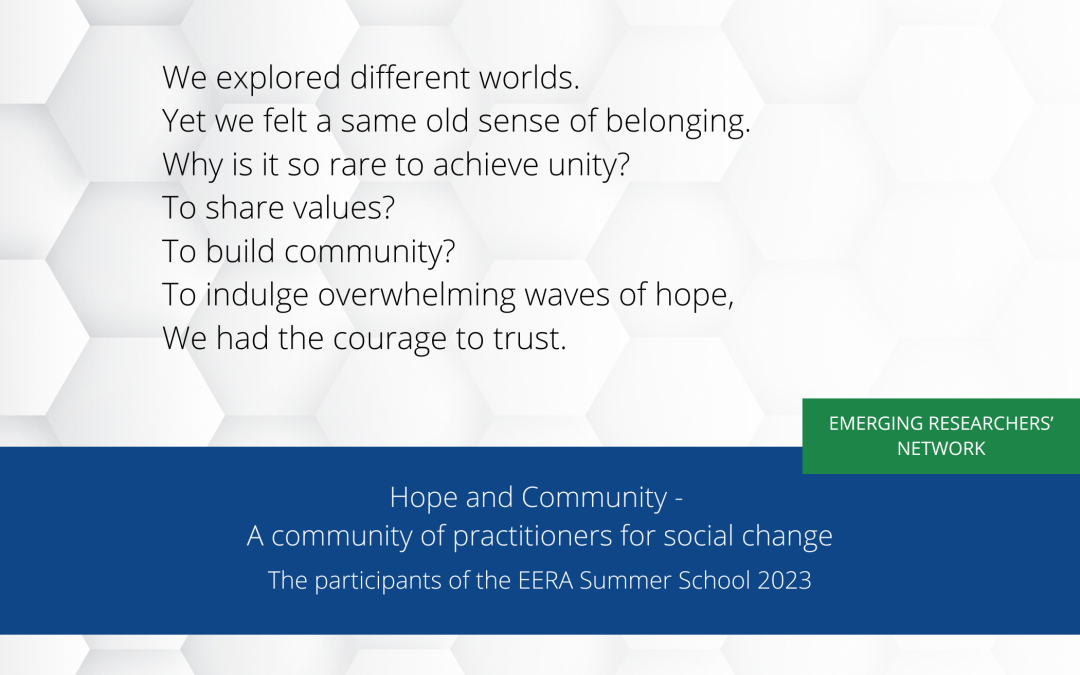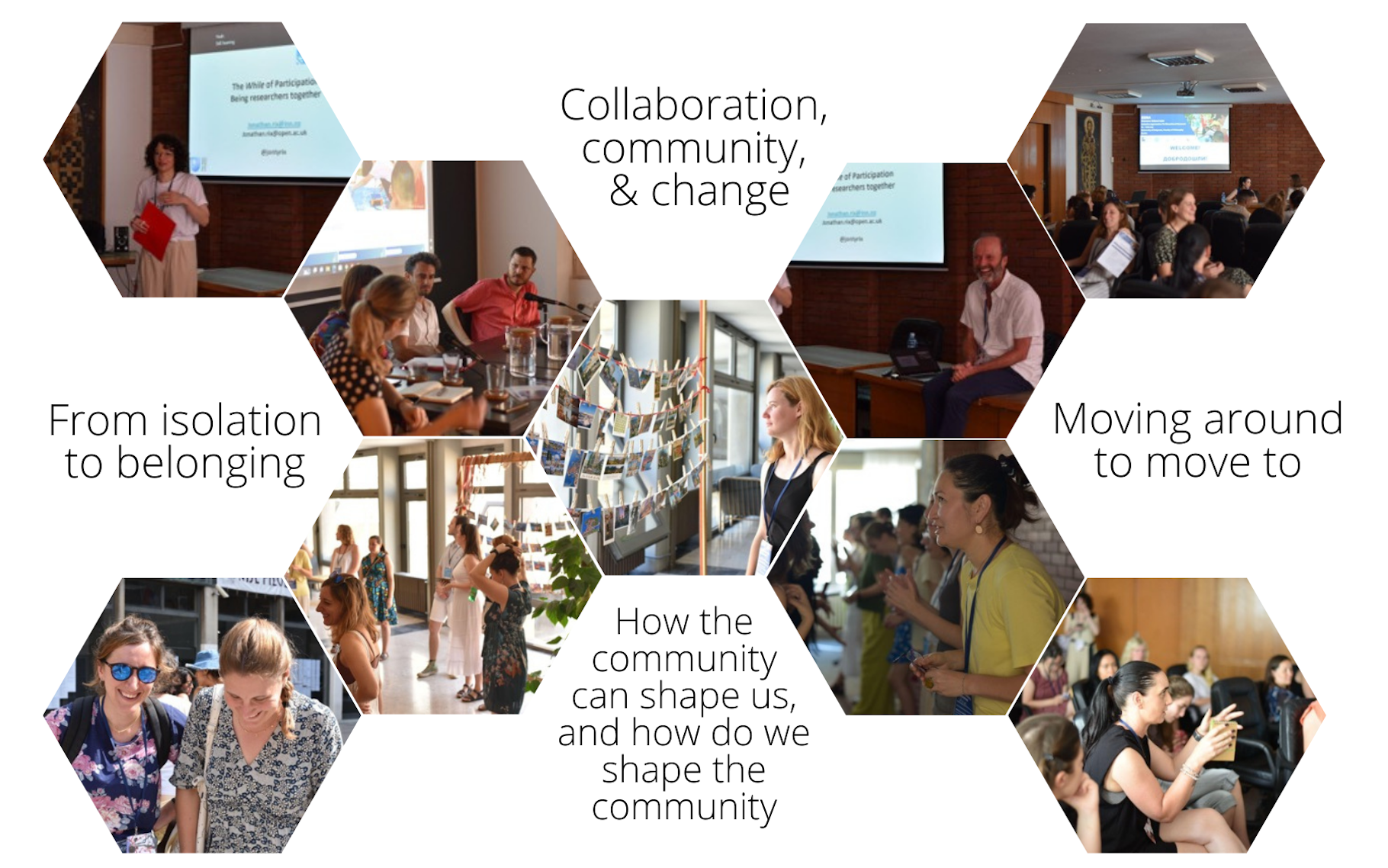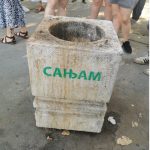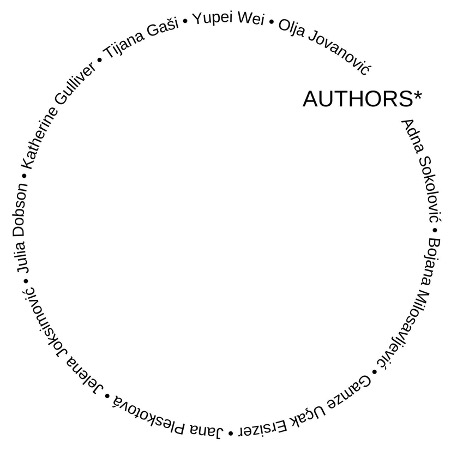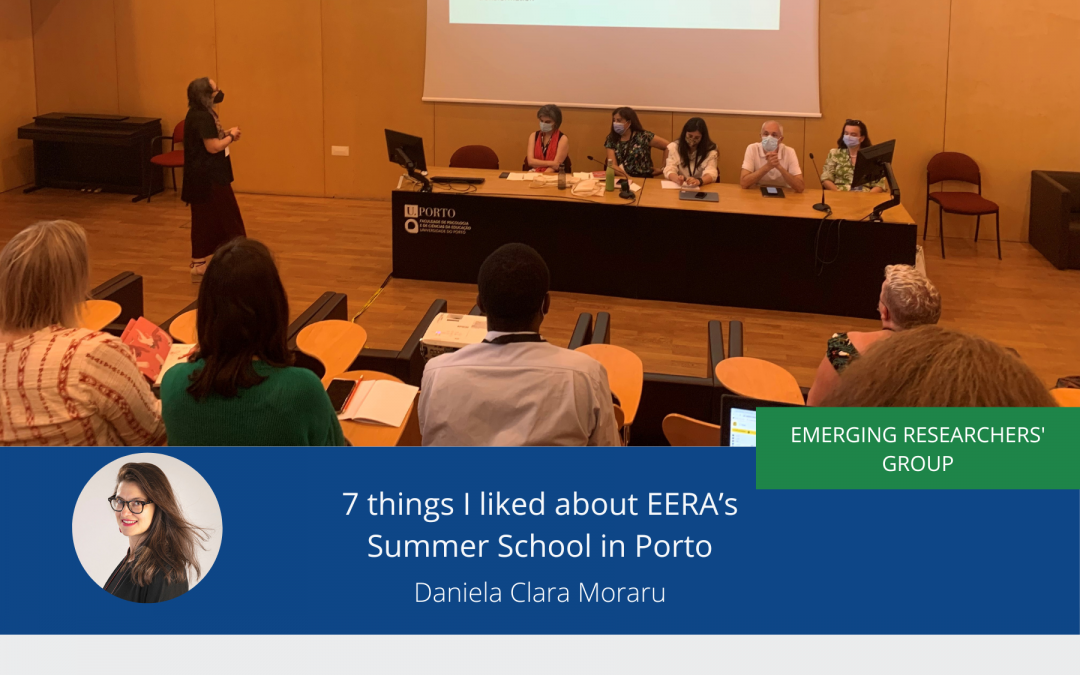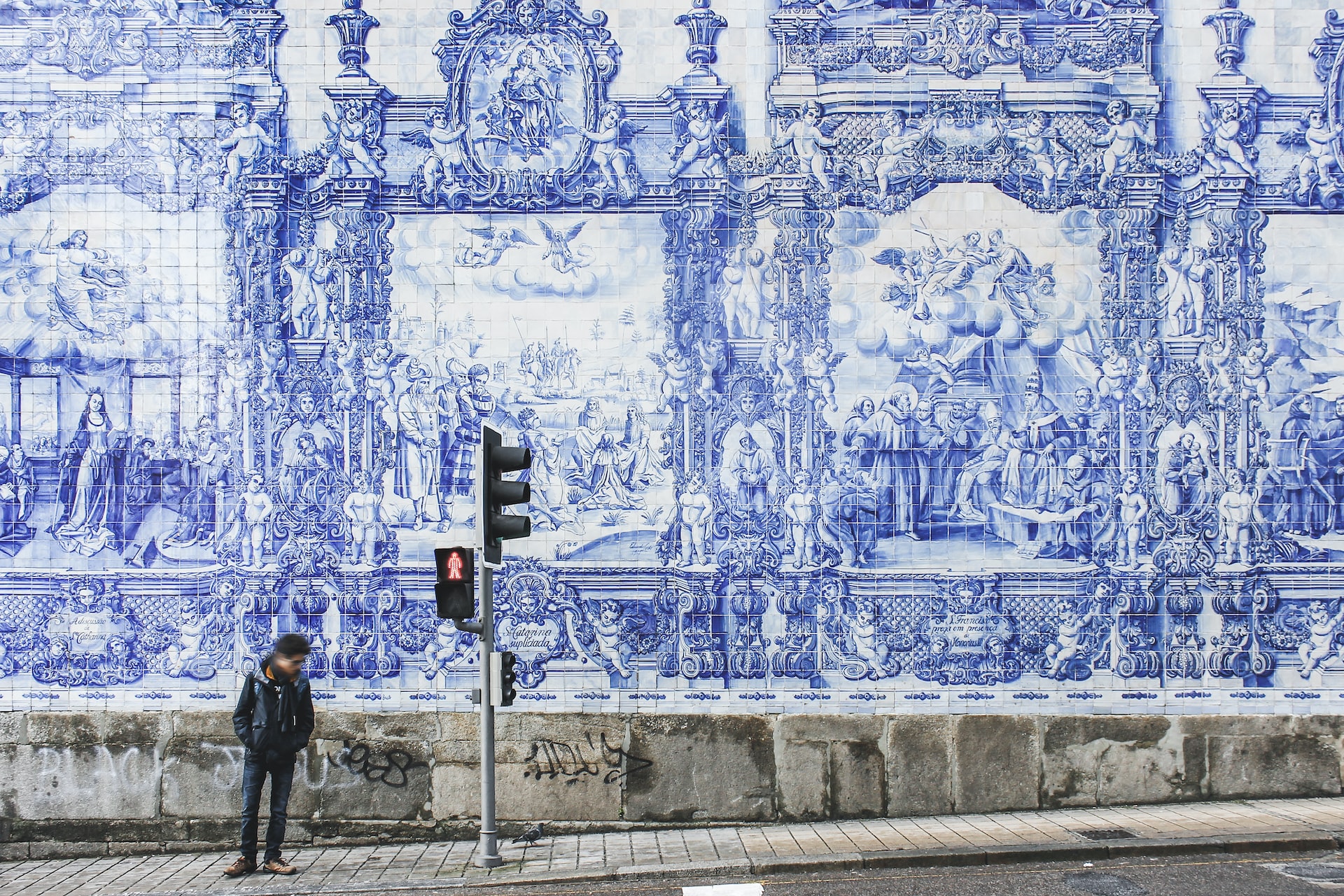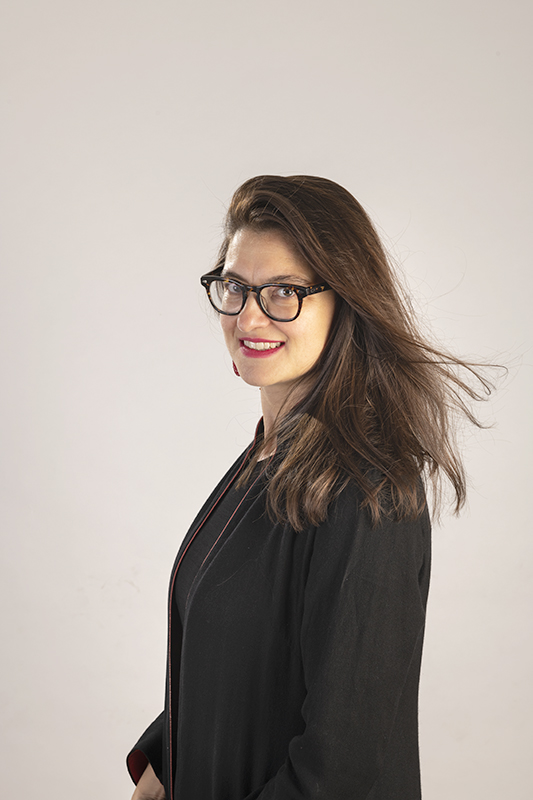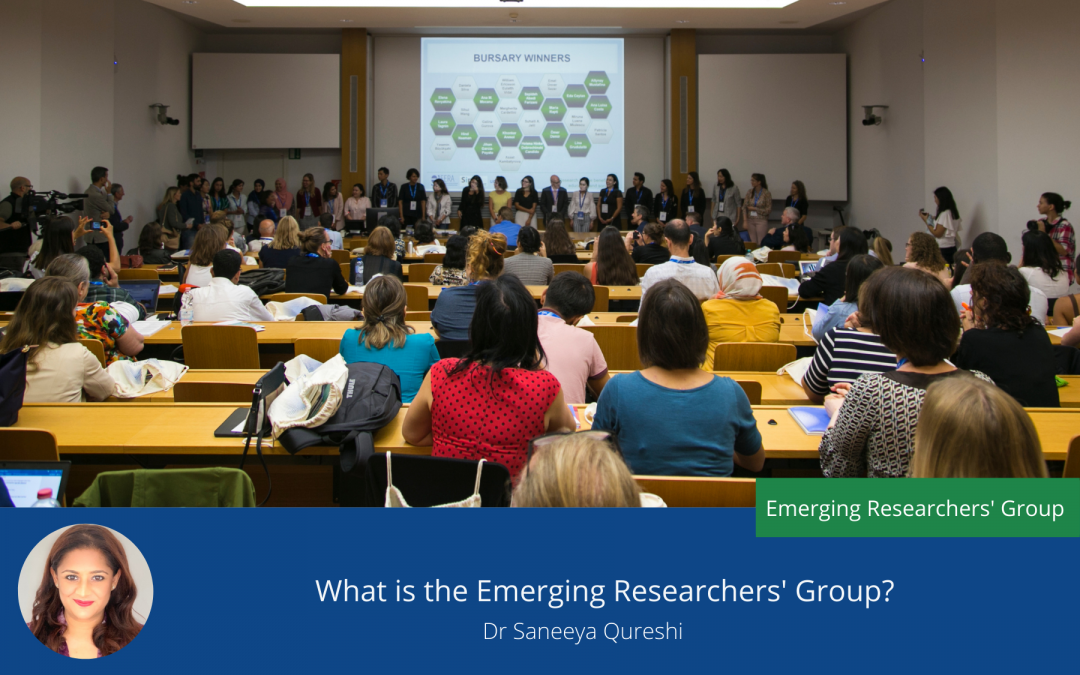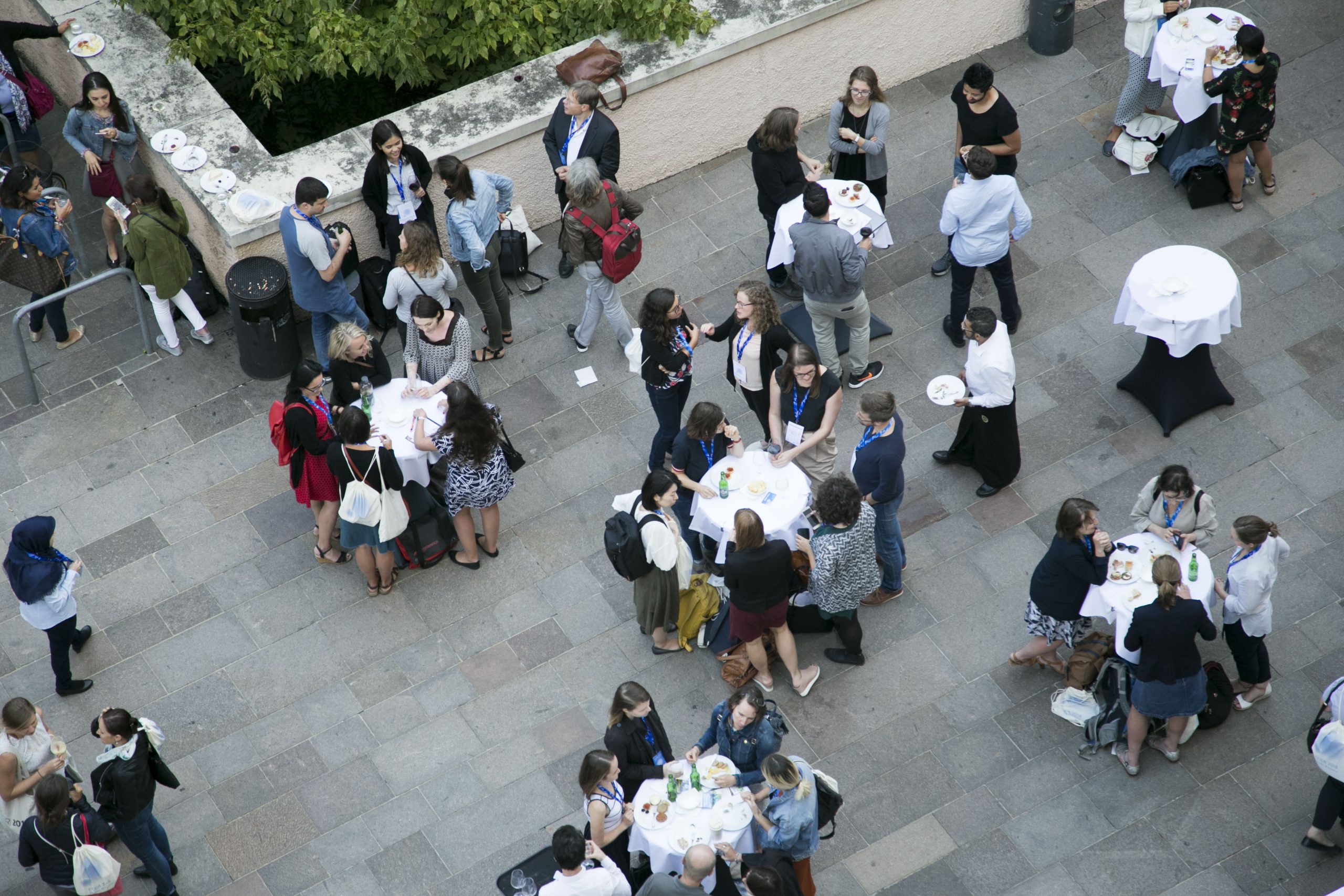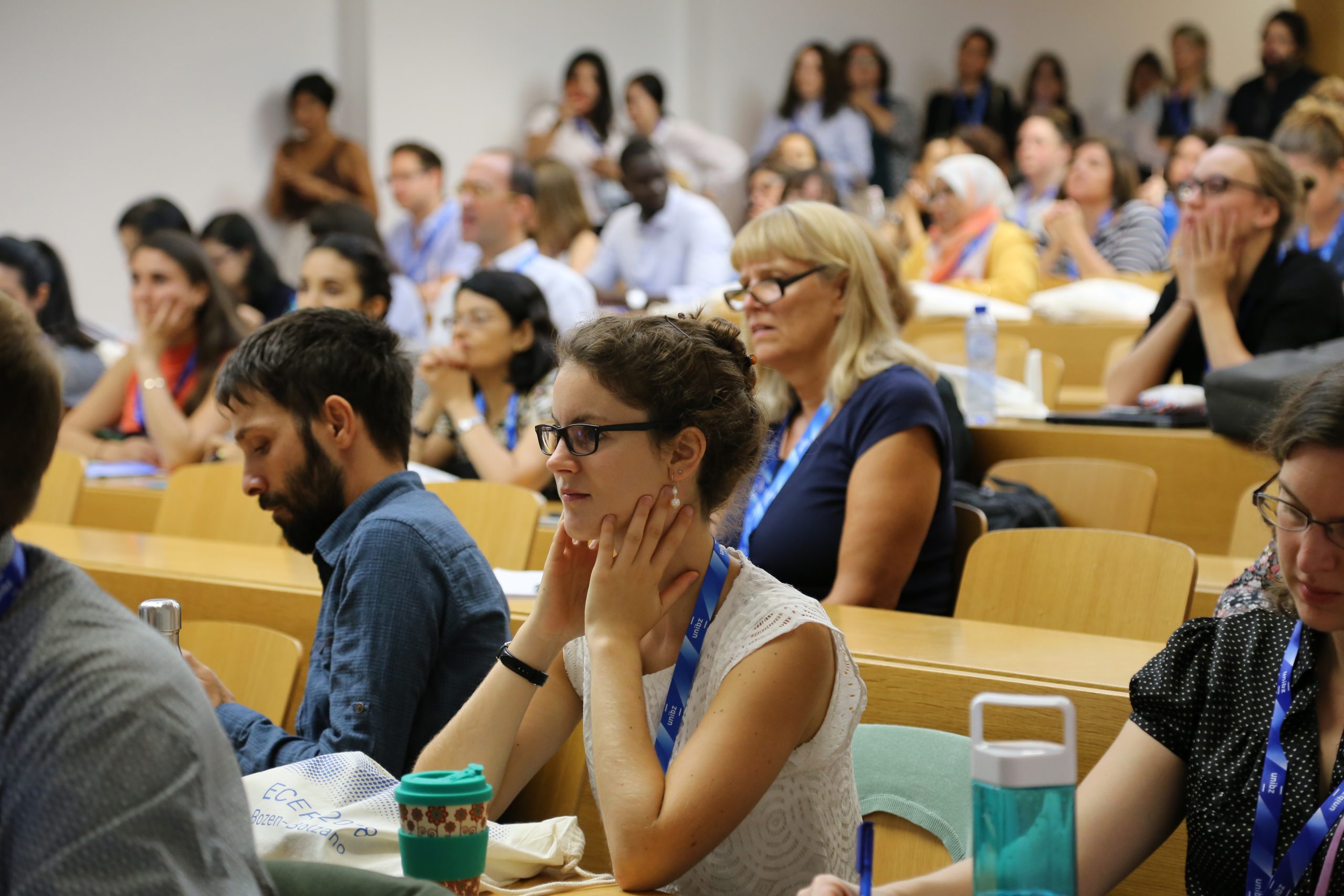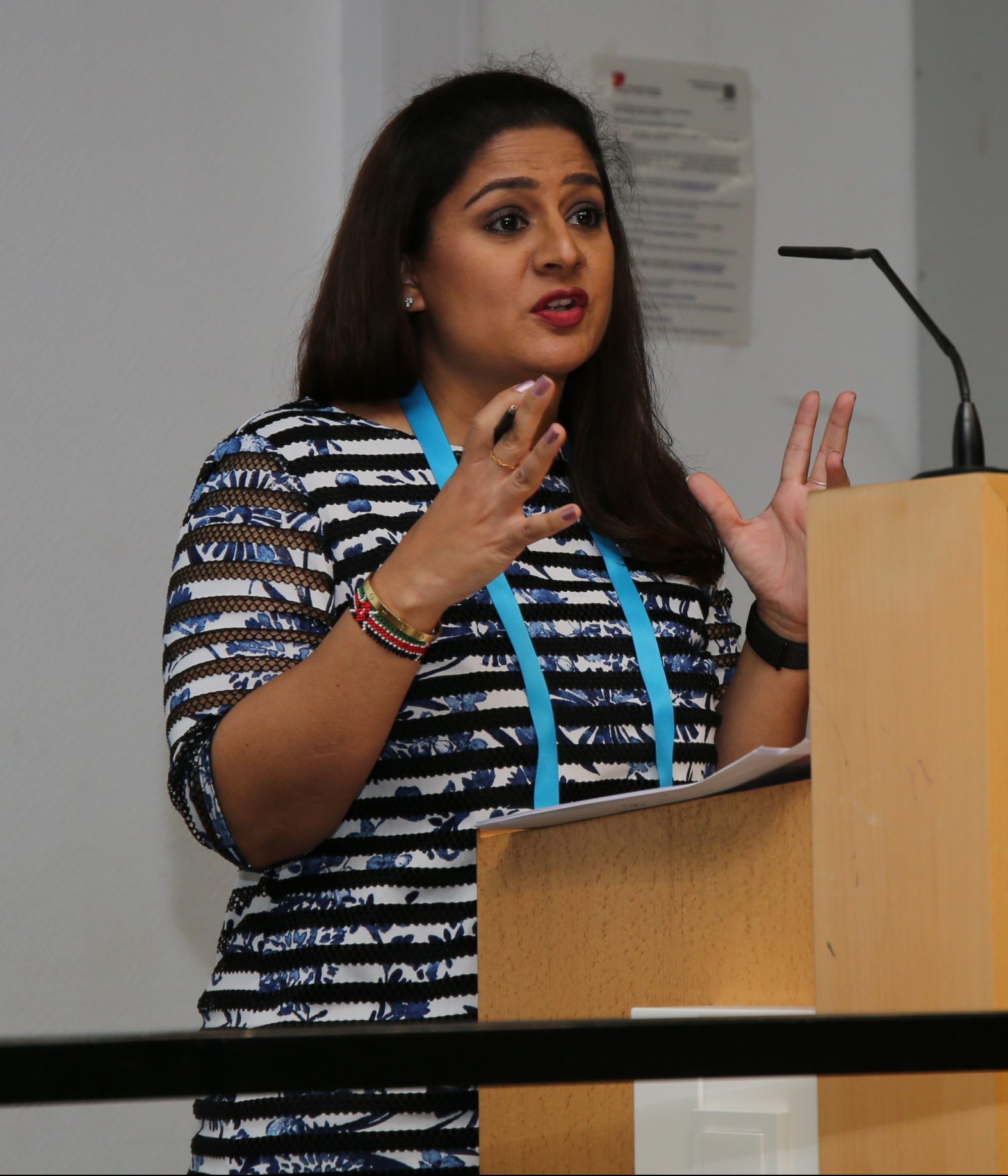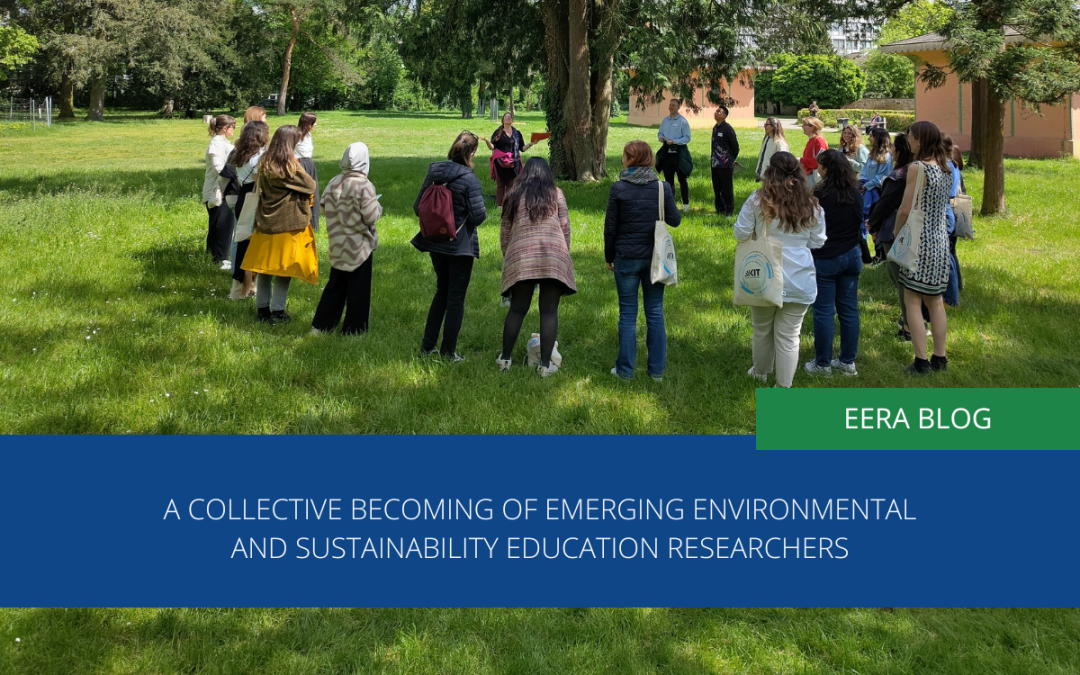
A collective becoming of emerging environmental and sustainability education researchers
“One of the most important experiences on the PhD journey.”
This may seem like a hyperbolic description of the four days of Transformative Learning in Sustainability: a pluriversal approach Seasonal School in Karlsruhe, funded by EERA’s NW 30 and Karlsruhe Institute of Technology (KIT), but the event enabled interactions that have influenced and informed our lives as Early Career Researchers (ECRs).
To express and perhaps explain the experience, we offer five aspects of researcher identity emergent at the Seasonal School: place and becoming, embodied, connected, brave, and hopeful. We want to share our collective experience to show the importance of participating in in-person Seasonal Schools as ECRs to network, find/create community and engage in exchange through the lens of transformative learning.
We have written collectively and used ‘we’ in most instances. Our individual voices have also been included as ‘I’. The use of ‘we’ refers to the six co-authors – we appreciate the experiences of other participants and mentors may differ.
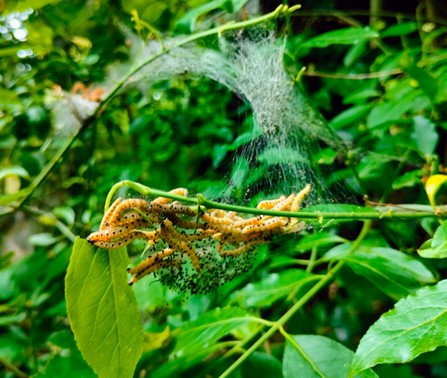
Image Description: A picture of something symbolising our research from a walk in the Schlossgarten as we got to know the surroundings. This one symbolises emotions one may feel when encountering something new, such as disgust, fear, hope, and joy. Credit: Emma Heikkilä.
Place and becoming
“In less than a week, I felt more at home in Karlsruhe than I do in the town where I was born and raised.”
The fan-shaped city of Karlsruhe was central to our experience. With the embodied experience of journeying to Germany’s early summer, one could not but smile. The trees were already green, people were spending time in the park, and one could easily sit in a Biergarten. There was something homely about Karlsruhe, a peaceful atmosphere – no wonder the name Karlsruhe translates from German to “Karl’s peace”.
Most of us were surprised by how much time we spent outside the formal settings of KIT, having experienced conferences where connection with the surroundings is optional. The first activity was to silently walk in the Schlossgarten. Later, we felt warmly welcomed at Kulturküche – an experimental public space for art and culture- for our first dinner. Another evening, we were led on a beautifully curated ‘sustainable city walking tour’, where we encountered a permanent high-top circus tent, community gardens, and eastern Karlsruhe, which turned our attention to the residents’ lives.
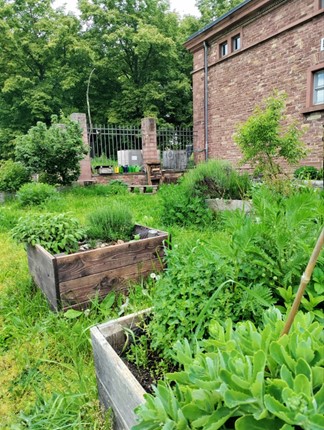
Embodied
“I cannot describe the affective relation to Karlsruhe in other words than “I fell in love with Karlsruhe.”
Often, we find ourselves as minds in front of a computer, but in Karlsruhe, we were learning, participating, and researching in an embodied way. The long, immersive days surrounded us with like-minded individuals as we collectively sought deeper understandings of ESE research and practice.
Beginning with a programme of workshops and talks, including a world café event, we had opportunities to connect, deepened by sharing our vegetarian meals. The programme kept us moving; we took our whole selves outside, made maps, walked, chatted, and wrote. We had moved into a liminal space, set apart from our usual routine and places and were invited into this new space, to think with new objects, people, and ideas.
More uncomfortable learning spaces were those that challenged us, invited us to consider other methodological perspectives, and learn from contextual circumstances in different countries. They also showed us the value of coming together as a diverse group of ECRs. Through conversations with others, with clay, and with ourselves in our diaries, we could sit with feelings of discomfort – physical, emotional and mental – that were raised during the Seasonal School. Slowly, the discomfort faded.
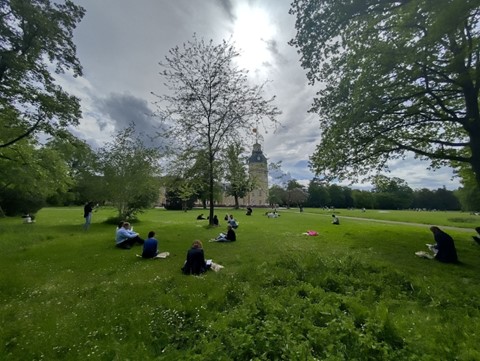
Image Description: Participants writing in their diaries while sitting in Schlossgarten, close to KIT. Credit: Julia Skilton.
Connected
“I will remember Karlsruhe as a defining aspect of my PhD – deepening my thinking, feeling and connections.”
During those four days, we experienced a dual connection between ourselves and with the environment. What started with an outdoor getting-to-know-you activity slowly developed into a sense of community. The variety of structured and unstructured activities created spaces for us to connect over shared use of theoretical frameworks, links between our projects, mutual personal interests and shared ideas. Experiential learning activities in diverse settings, such as the university park, allowed us to connect with the environment. In conversations with clay, we realised the ways we affected the clay and how it affected us; learning to listen to its voice, experiment, and explore creative avenues.
This allowed us to connect with the more-than-human world through embodied experiences, and engage in collective discussions and collaboration. The notion of a network driven by more than impact and outcomes was important to our discussions throughout the four days and in our plans to collaborate in the future. Karlsruhe has been a significant part of our journey of connecting with others and the environment, and ‘becoming’ sustainable education researchers.
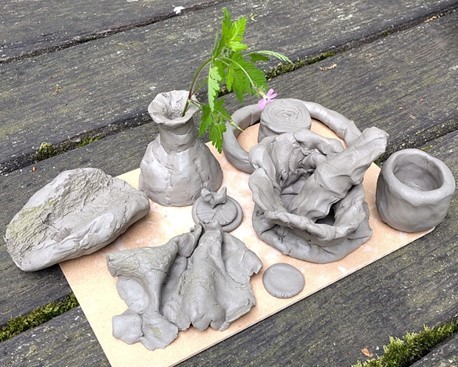
Image Description: Selected clay artefacts from our “Conversations with Clay” Session. Credit: Sarah Strachan.
Brave
“Sustainability isn’t all beauty and loveliness – it means facing up to challenging uncomfortable situations and working forward with it.”
As ECRs, there is pressure to present our work. Often before we are comfortable with it ourselves, we share our work with others who usually want to critique (or criticise) our ideas and methods. Despite our shared motivation to build research careers, during the Seasonal School, there was a lack of competition that is often present at similar events. In presenting our research through a poster and small group discussion, we shared concerns and ideas about things that excited us, which we felt would inform each other’s work.
Through activities where no one was an expert, we gained confidence in the support available. In accepting our vulnerability, we were made brave. Our differences enabled us to stand apart together and share without fear. Together, we embraced being in a liminal space on our shared PhD journeys, a place where we set aside our egos without even realising it.
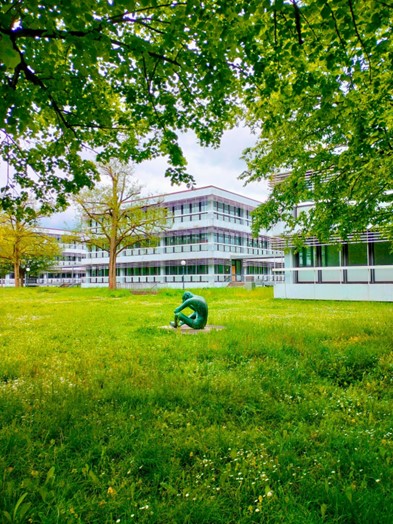
Image Description: Statue of ‘Der Denker’ made by Karl-Heinz Krause in Schlossgarten. Credit: Emma Heikkilä.
Hopeful
What initially connected us is our ESE research, which is entangled with the horrors of climate change, environmental disasters, and gross exploitation. Simultaneously, we are learning to navigate complex and unsustainable structures of academia (continuous competition for resources, high pressure on publishing, and efficiency requirements). Finding ourselves in the midst of working with emotionally challenging topics, we may feel alone and exhausted under the burden of the “publish or perish” mentality. We shared our thoughts on this in a dedicated fishbowl discussion.
We addressed hope and hopelessness, and many agreed that we cannot accept hopelessness. However, it often seems as if the work is left to the individual to not give up. Where do we find hope? Can we research if we are hopeless? Maybe hope should not be seen as a stable, binary matter. Hopelessness may also elucidate valuable insights of what to prioritise, and how to (re)gain hope.
Hope can be found in connections to others – finding a sense of belonging, being with each other and reaching the person behind the professional. Sharing our messy ideas, half-baked thoughts, and insecurities requires courage and vulnerability, but in the community formed, this became possible.
We met like-minded colleagues, and those with different ideas from our own, which deepened our perspectives. We were able to think and be active in embodied, emotional and spiritual ways. This reminds us that we are vulnerable embodied beings, and helps us to embrace that. We realised that we are already part of the ESER community of practice, and that this opens up opportunities for collaboration on future ESE research and beyond.
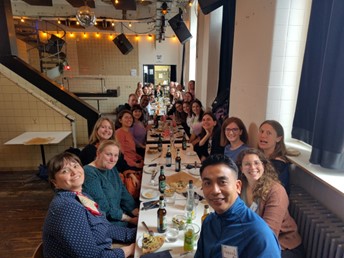
Image Description: Group of participants sitting at a long table having dinner in a former slaughterhouse now restaurant ‘Fettschmelze’. Credit: Olivia Wohlfart.
Concluding thoughts
To build on this young ESE PhD network formed in four days, we created an online group to keep in touch. The idea of writing and sharing our collective experiences emerged. Putting our thoughts into words – together – has not only helped make our reflections more concrete but has also been a way for us to nurture the connections formed in Karlsruhe. Education is so much more than measurable, tangible ‘outputs’. We didn’t leave the Seasonal School having ticked the boxes of certain learning outcomes. Rather, the process became part of us, and we bring it with us on our evolving paths. We reflect whether the experience will continue to influence us as researchers, educators, and citizens, and if so – how?
The Seasonal School shaped our identity as researchers through place-based, embodied and collective experiences. Being part of a supportive ECR community helped us realise that through collaboration, we can better negotiate the unknown future, whether this relates to our PhD journeys, or sustainability issues generally.
We hope that our reflections inspire future ECRs to experience Seasonal Schools and highlight the enormous value in organising in-person events which bring ECRs from diverse countries, disciplines and backgrounds together.
Key Messages
- Sharing our ECR experience, we highlight the value of participating in in-person opportunities to find community and engage in exchange.
- Embodied experiences relating with people and place are fundamental to Environmental and Sustainability Education.
- Our reflections exemplify the possibility of transformative learning experiences in academia.
- Environmental and Sustainability Education is more than measurable outcomes.
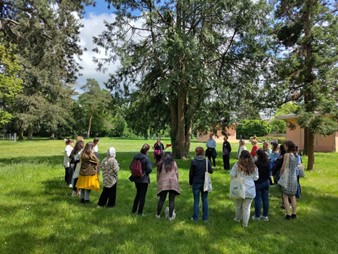
Authors
Penelope Williams, University of Bristol, UK https://orcid.org/0009-0002-0511-400X
Julia Römer, Glasgow School of Art, UK https://orcid.org/0009-0000-5986-8478
Julia Skilton, University of Edinburgh, UK https://orcid.org/0009-0002-0292-244X
Caroline Kocel, Anglia Ruskin University, UK https://orcid.org/0009-0004-0740-7783
Emma Heikkilä, University of Helsinki, Finland https://orcid.org/0000-0002-4422-575X
Eleftheria Iakovidou, University of Gloucestershire, UK https://orcid.org/0009-0006-1699-6123
Infobox
Overview: Seasonal School 2024
NW 30. Environmental and Sustainability Education Research, ESER – Seasonal School 2024 | EERA
Mentors:
Dr Olivia Wohlfart, Dr Elsa Lee, Dr Jonas Lysgaard, Prof Alan Reid, Sarah Strachan

